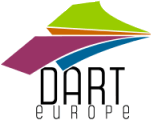Marzban Sadegh
Hybrid PDE-ABM models: from oncology to virology.
Doktori értekezés, Szegedi Tudományegyetem (2000-).
(2023)
|
PDF
(disszertáció)
Download (7MB) |
|
|
PDF
(tézisfüzet)
Download (1MB) |
Absztrakt (kivonat) idegen nyelven
This PhD thesis presents three new mathematical models aimed at advancing the current understanding of viral dynamics and cancer. The models are implemented in the HAL system and are applied to address current significant questions in the field. The first model, described in Chapter 3, is focused on the evolution of sensitive and resistant tumor cells and considers Darwinian selection, Lamarckian induction, and microvesicle transfer as mechanisms for resistance. The model is compared to an agent-based model and provides insight into the impact of microvesicles on the spread of cancer cells. Chapter 4 presents a hybrid partial differential equation - agent-based (PDE-ABM) model to describe the spatiotemporal viral dynamics in a cell population. The virus concentration is modeled as a continuous variable, while changes in the states of cells are represented by a stochastic agent-based model. The two subsystems are intertwined and the model is applied to predict SARS-CoV-2 and influenza infections. The results are compared to a classical ODE system of viral dynamics and demonstrate the importance of considering spatial patterns in predicting the spread of infections. In Chapter 6, the pharmacometric features of the novel antiviral drug Paxlovid for SARS-CoV-2 are explored using a hybrid multiscale mathematical approach. The results of the evaluation match clinical expectations and provide insight into the importance of early interventions and the sensitivity of the results to the diffusion coefficient of the virus. Overall, this PhD thesis makes a significant contribution to the current understanding of viral dynamics and cancer and demonstrates the potential of mathematical models to provide insight into these complex systems.
| Mű típusa: | Disszertáció (Doktori értekezés) |
|---|---|
| Publikációban használt név: | Marzban Sadegh |
| Témavezető(k): | Témavezető neve Beosztás, tudományos fokozat, intézmény MTMT szerző azonosító Röst Gergely adjunktus, Bolyai Intézet (Matematikai Intézet) SZTE / TTIK 10000778 |
| Szakterület: | 01. Természettudományok > 01.01. Matematika > 01.01.01. Elméleti és alkalmazott matematika > 01.01.01.11. Differenciálegyenletek és dinamikai rendszerek 01. Természettudományok > 01.01. Matematika > 01.01.01. Elméleti és alkalmazott matematika > 01.01.01.18. Numerikus analízis és tudományos számítás |
| Doktori iskola: | Matematika Doktori Iskola |
| Tudományterület / tudományág: | Természettudományok > Matematika- és számítástudományok |
| Nyelv: | angol |
| Védés dátuma: | 2023. március 21. |
| EPrint azonosító (ID): | 11559 |
| A mű MTMT azonosítója: | 34136879 |
| doi: | https://doi.org/10.14232/phd.11559 |
| A feltöltés ideje: | 2023. feb. 10. 09:06 |
| Utolsó módosítás: | 2023. szept. 12. 14:46 |
| Raktári szám: | B 7178 |
| URI: | https://doktori.bibl.u-szeged.hu/id/eprint/11559 |
| Védés állapota: | védett |
Actions (login required)
 |
Tétel nézet |






